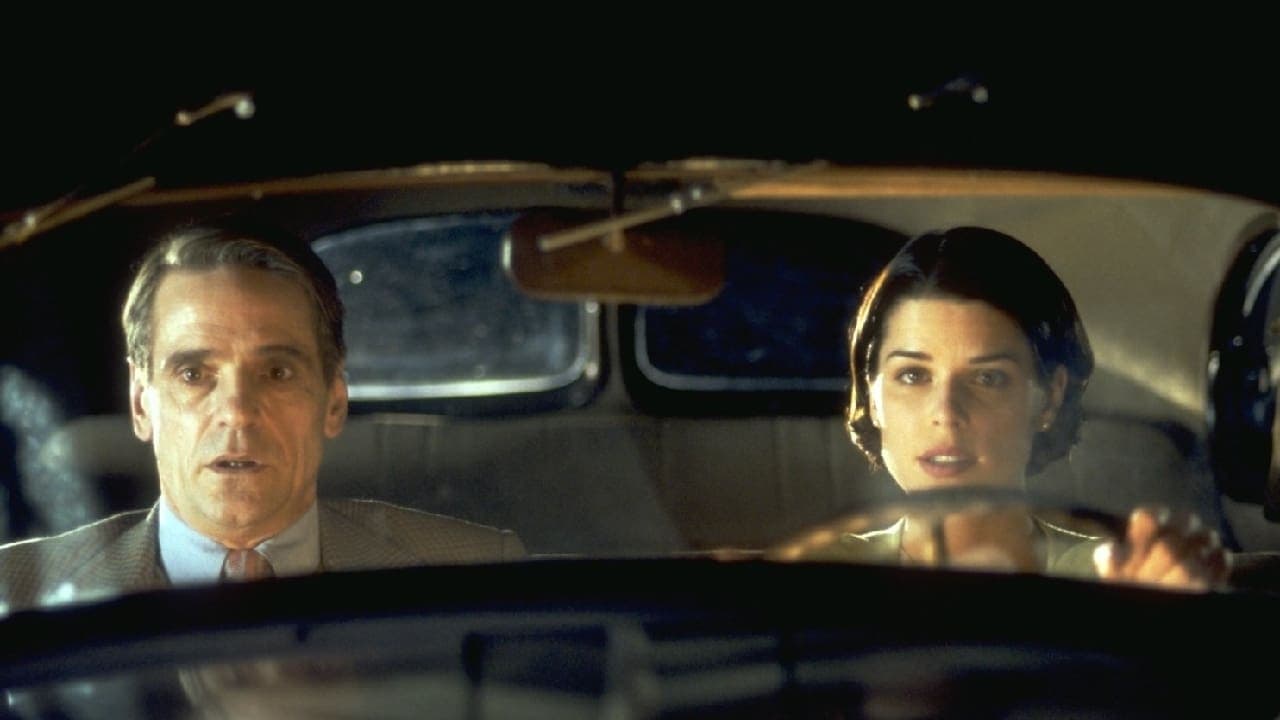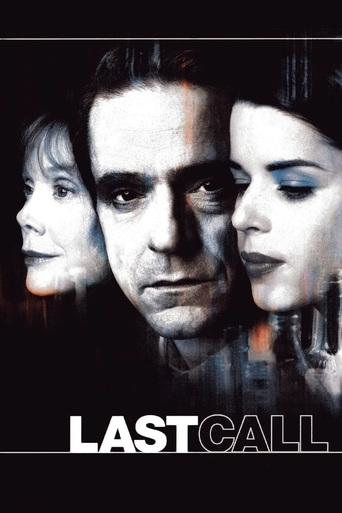

Very well executed
... View MoreA Disappointing Continuation
... View MoreIt’s fine. It's literally the definition of a fine movie. You’ve seen it before, you know every beat and outcome before the characters even do. Only question is how much escapism you’re looking for.
... View MoreYes, absolutely, there is fun to be had, as well as many, many things to go boom, all amid an atmospheric urban jungle.
... View MoreThis portrait of F. Scott Fitzgerald's last days--as a wreck, battling alcoholism and trying to write "The Last Tycoon" with considerable help from his much younger new secretary--has some digressive scenes in the middle but is primarily intelligent and involving. Jeremy Irons is excellent (though at times his Yank accent can be a bit overdone) as the past-prime author, but the surprise is that Neve Campbell (whom I haven't very often been all that impressed before) does an excellent job as the secretary seduced into this sickly, washed-up but still highly intelligent and sometimes very charming man's spell. Sissy Spacek is effective enough as Zelda Fitzgerald, although her occasional appearances as a taunting/nagging phantom of sorts are a screen writing device that doesn't totally come off. It's a fine perspective on Fitzgerald that doesn't cast him as some kind of saintly victim but gives full weight to his talent and personal weaknesses.
... View MoreDoes Jeremy Irons ever give less? This is currently being shown on the British Movies24 channel. Jeremy Irons gives a perfectly judged performance, perfect for every expression, spoken word or even glance. He had though good material to work with - its basis in the recollections of one of the films main protagonists, his secretary, Frances Kroll, who herself was a would-be writer. The direction too seemed to perfectly follow the mood - even Frances' unspoken thoughts especially expectations. The only thing to jar was that at these moments of unspoken thoughts, a song would be played in the background spelling out exactly these unspoken thoughts.Neve Campbell was excellent as Frances - in her playing perhaps her attitude was a little wrong - he the great writer, she rather mousy unknown secretary would have been perhaps a bit more reverential. But it may be Frances Kroll's writing which reveals the true nature of their relationship, that moment nearly at the end when he stops, turns to her and she (and the audience) could imagine an offer of marriage yet he "merely" wants to say something about writing. Overall it is a rich and revealing biography from someone who was both closely involved as well as being a good and honest writer. Perhaps this is why Jeremy Irons gave it his best shot.
... View MoreChecking the credits on writer/director Henry Bromell, it seems that we have someone who's written for "Chicago Hope", "Homicide" and "Northern Exposure". So a class act chooses to write about a screenplay about a writer, and the results are about what you'd expect. Pretty exceptional stuff. Jeremy Irons tosses his hat into the ring for an Emmy nom here. Another standout performance.However..the big surprise to me is the performance of Neve Campbell. Get this girl off the "Scream-4" set and into some period pieces in a big hurry, fellas. She's ready to rock and roll. Pair her up with a decent script and an Oscar-caliber actor or two and she holds her own rather nicely, thank you.Thanks to Showtime for the "Last Call" 15-minute addendum with Irons, the omni-present George Plimpton and Frances Kroll Ring briefly discussing F. Scott's greatest hits.
... View MoreThe always-superb Jeremy Irons is once again brilliant, this time as American writer F. Scott Fitzgerald, living out his final days - ravaged, raw, tragic and above all, sympathetic, even (or especially) at his worst. A shattering performance, the kind only Irons can give. The movie is extremely well-conceived; as a writer myself, I truly appreciate a movie about the ACTUAL WRITING PROCESS of being a writer, which is hardly ever depicted on screen - for fear, perhaps, of being boring. This film is anything but.
... View More